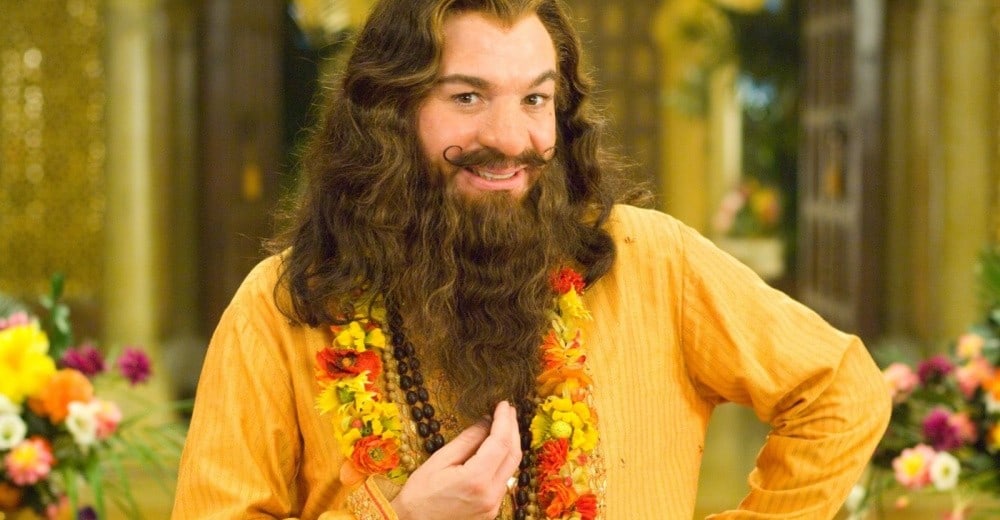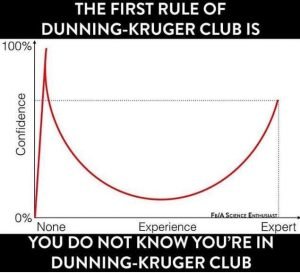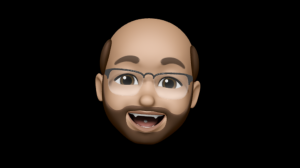A review of an interesting opinion piece on The Physio Network by Todd Hargrove.

Image of Mike Meyers in The Love Guru. Credit KarryOn
Summary of the article
- Experts are those with an in-depth knowledge of a subject and acceptance that they do not know everything about it.
- Gurus know enough to convince novices that they are in the know, but never mention that they don’t know it all.
- These Gurus don’t have the magic answer to cure all that ails us, and you should view them with suspicion.
- Experts, on the other hand, explain the uncertainty and accept that they don’t know it all (even telling people about this).
- “Maybe we should only call people gurus if they are to blame for their inflated reputations – maybe by inventing false credentials, or preying on the naïveté of the public”?
My perspective
Throughout my career I have been labelled an expert (and even a guru) by patients, but interestingly enough, this was based on what my interaction meant for the patient in front of me – nothing I had direct control over.
I personally take more pride when someone tells me they can see I am doing my best to follow evidence based and best practice treatment when working with them – one of the major reasons I do not support terminology and titles (earned or implied) as a way to identify competence or ability.
Most of us within the clinical space find it frustrating when misinformation is used to sell a particular product, service or approach. And don’t get me wrong, there are plenty of people and services that fall within the stereotypes described in Todd’s blog post, but I feel a little more information and discussion is warranted.
The issues (as I see them)
The issue that I have with a post like this is that it defines “expert” and “guru” as completely different, and with negative connotations artificially lumped on to one of these titles.
It is a bit of a false application of the Dunning-Kruger effect, lumping all of the cognitive bias on Gurus. It is fair to say that simply because you accept that you don’t know everything, does not mean that you accurately appreciate how much you do know.
- “For example, people like Lorimer Moseley, Paul Hodges and Greg Lehman have spent years studying and researching pain and movement, but will frequently remind their audience of how much they don’t know. When asked about how to apply their knowledge to solve a specific problem, they will very often say something like “it depends”, or “I would need to know more” or even “no one really knows!””
To suggest that all guru’s believe that they know everything about a topic and experts accept that they don’t, is a false dichotomy (suggesting that the conclusion must be either A or B when the reality is that there are shades of grey between these options) and this is a significant issue in the consideration of this position. Given the title may be bestowed by the public, and a lot of very humble, very good clinicians would consider themselves neither, it’s really not that clear cut. Splitting the two terms based on an expert’s acceptance and willingness to express that they don’t know it all, is also problematic and viewing it as such may encourage a new marketing ploy for the sellers of “Woo” – self deprecation.
- Will my snake oil cure your cancer, you ask? Why, I would really need to know more, as it depends on many different factors and no one really knows….. but it works for most other conditions with vibra-rotational ionic membrane dysfunction*…..
(*term I made up to make this point.)
This is the issue with reversing the logic on biases – accepting that you don’t know it all does not mean you are not suffering from the Dunning-Kruger effect. Its the same as “All thumbs are fingers – but not all fingers are thumbs”.

Credit: what.thedailywtf.com
When trying to determine the difference between someone who’s opinion, advice or input may have great value, and someone who should be avoided, this dichotomy of expert vs guru sets that bar, not too high or too low, but rather, in a totally different athletic park.
Like most people who understand a science-based approach, I believe that we need to learn how to test out the internal and external validity of opinions, rather than basing our opinion of a concept’s worth, on if the person providing the opinion is an “expert” or a “guru” (or what ever other title they choose to apply – see Master Trainer) – that would be, after all, a sort of reverse argumentum ab auctoritate or argument from authority i.e. we would be seeking the presence of an authority to validate the concept, rather than judging it on its own validity.
I recently read a Facebook post for a Chiropractor that appalled me (review to come), but on reading through the information on his website, I could see how he worked through what he knew and got there. Some of the information was quite correct, but it appeared that he simply struggled to interpret and apply the information correctly – he was noting facts and coming to conclusions (logically, when his bias was considered), trying to express an expert opinion, but failing, not because he had a lack of understanding of how little he knew (Dunning-Kruger), but rather because he drew the bow a bit too far.
- It is correct to say that life jackets save lives at sea, it is not correct to say all people who fall in the sea would be saved by a life jacket.
So, while I think that Todd has the right idea in mind, I have watched many “Experts” become “Gurus” (as per his definitions), including a number of the pain science community, strength & conditioning world and musculoskeletal physiotherapy. I believe that he is well read, I believe that a lot of people are, but critical thinking, understanding where flaws in reasoning happen or when assumptions are presented as findings or facts, is more likely to keep you safe from falling into the next fad diet, treatment or exercise trend than an artificial dichotomous classification of Guru or Expert.
A word to the wise – take care with experts and gurus, as well as people who are any combination of the above. Anyone who is, or views themselves as so specialised as to seek a position as either expert or guru, may have lost the wider view, to consider the whole person or full clinical picture. Just because you accept and/or state that you don’t know it all, does not stop you from selling what you believe is the best information at the time, even if this is not well supported in the literature. Look for a critical thinker, someone who can give you logical advice that makes sense across different fields of understanding and perhaps someone who is not looking to grow a reputation or a following.
I will say this, however, I actually support the first quote I used from Todd above, that actually, the issues come when someone is responsible for their own inflated reputation or where they falsely claim a special knowledge or skill, but we have another word for those people – Charlatans.
Stay sceptical, ask questions, and realise that if it seems to be too good to be true or it applies to everything, it probably is and it probably doesn’t (respectively).
Health & Fitness
Az

Leave a Reply